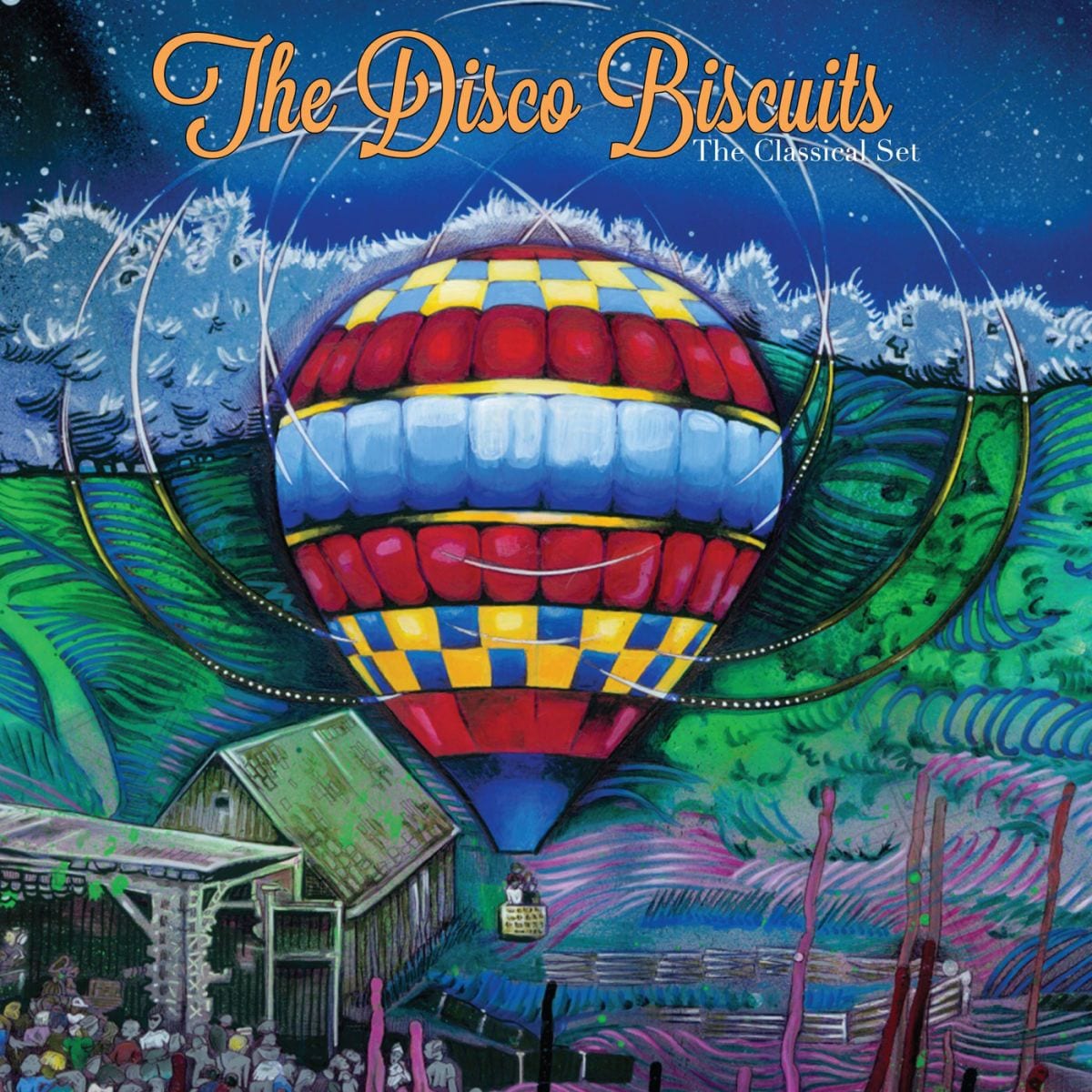The Disco Biscuits recently released a remastered recording of their 2003 performance at TranceMission music festival in Tennessee, one that has since been lovingly referred to as ‘the classical set’. This remastered recording is available on vinyl and for download and includes covers of classical pieces by composers such as Mozart and Tchaikovsky, as well as some Biscuits’ songs that are heavily influenced by classical music.
 This recording is a perfect addition to a Disco Biscuits fans’ holiday wishlist, or for those of you who aren’t as familiar and want to see what this band is all about, this may be a good option for you.
This recording is a perfect addition to a Disco Biscuits fans’ holiday wishlist, or for those of you who aren’t as familiar and want to see what this band is all about, this may be a good option for you.
The album starts off with Mozart’s “Eine Kleine Nachtmusik” whose title sounds foreign but you would most likely be able to recognize by ear. The song starts off sounding like a day at the races, and is driven by Jon ‘Barber’ Gutwillig’s guitar whose riffs at some points makes you feel like you’re walking on a tightrope. This particular song by Mozart seems a good choice because it’s happy and fast paced, and demonstrate the Biscuits’ ability to successfully tackle a classical composition.
The next track is “The Devil’s Waltz”, which shines on this recording as an example of classical inspired Biscuits’ songs. “The Devil’s Waltz” starts out sounding like the introduction of a Russian wedding and unfurls itself into a dark jam in the middle, which is perhaps a nod to the song’s title. The song ends on a high note and as with many classical music pieces, it tells a story that can be interpreted differently by each listener.
From there they play a short and sweet but incredibly fast paced cover of “Sabre Dance”, originally by Aram Khatchaturian. Coming in at a little over two minutes long, “Sabre Dance” resembles a song that would be fit for a circus. A slightly whimsical sound, this song enables you to envision clown cars crashing into each other, or old jugglers tossing their wares high into the air.
“The Thieving Magpie” and “The Overture” are two songs that display the bands’ ability to connect with each other and develop a sophisticated sound. “The Thieving Magpie”, originally written by Italian composer Gioachino Rossini, sounds like what an Eastern European military officer might listen to on his day off. Characterized by trilling notes on the guitar and piano, it is pretty and compelling. “The Overture”, which is the second classically inspired Biscuits’ song on this album is characterized by breakbeat jams and a complex layering of sounds, which is really what The Disco Biscuits do best. “The Overture” is really a quite beautiful song that starts out uplifting and then delves deeper down into a more electronic influence. Each member of the band truly coalesces and is instrumental in making the song work to garner your attention. The song ends with a definitively more classical feel, swooping the listener back into the light.
The album rounds itself off with two more classical covers, “In the Hall of the Mountain King” by Edvard Gries and “Waltz of the Flowers” by Tchaikovsky, where once again the Biscuits’ emboss their own style onto different classical pieces. Throughout the entirety of the album, The Disco Biscuits use the template of classical compositions to explore different areas of their sound. Whether you’re interested in listening to a new side of The Disco Biscuits you haven’t heard before, or wanting to hear new interpretations on old classics, The Classical Set demonstrates that The Disco Biscuits can stay true to the essence of their cover songs while sealing their own mark onto timeless compositions.
Key Tracks: Eine Kleine Nachtmusik, The Devil’s Waltz, The Thieving Magpie


Comments are closed.